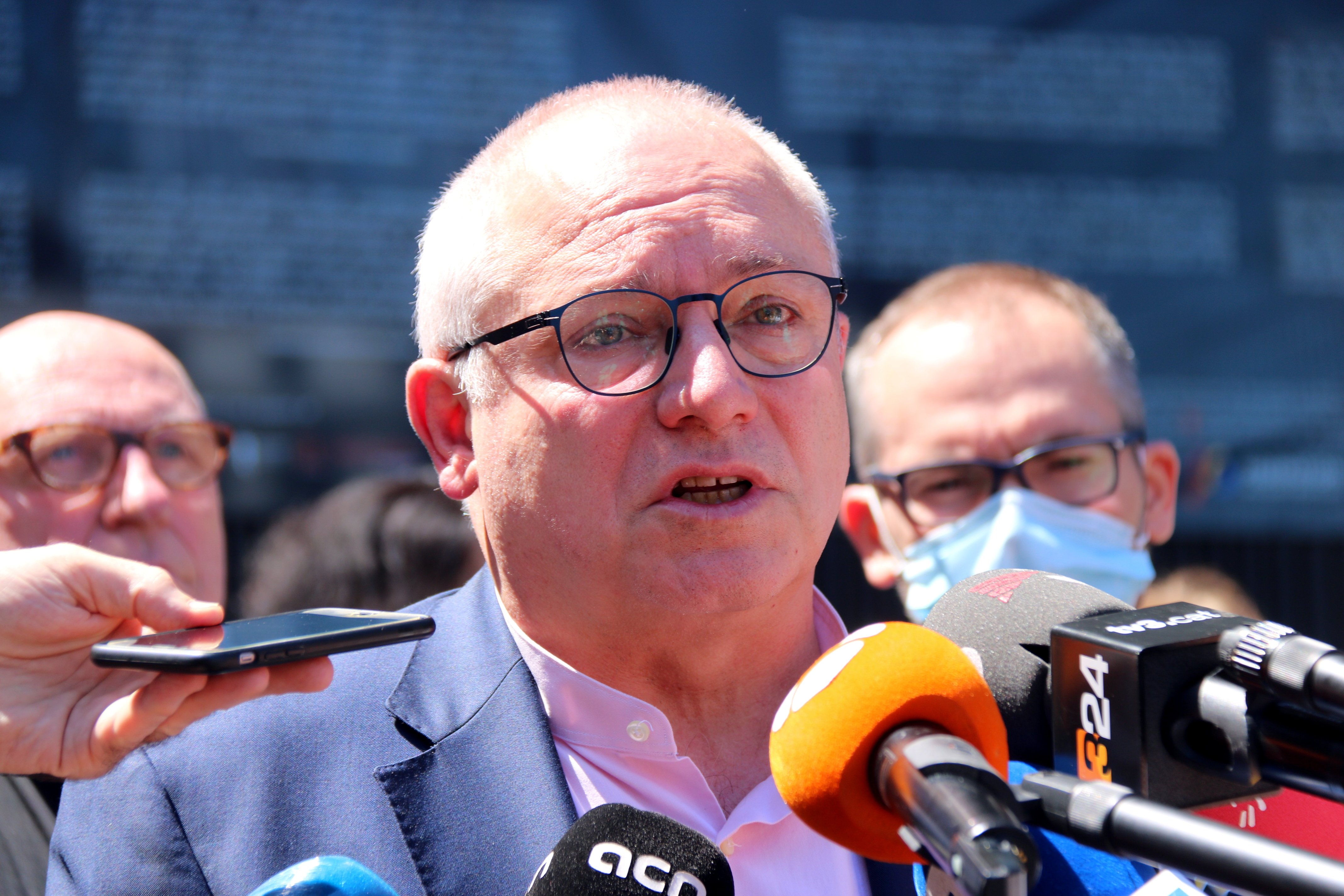Belgian justice has once again rejected the extradition of exiled Catalan minister Lluís Puig to Spain. This was the ruling given this Thursday by the Brussels Court of Appeal, after Spanish public prosecutors appealed against the decision on 7th August last year, which determined that the Spanish Supreme Court was not competent to put Puig on trial.
It is the third time that Spain has presented a European Arrest Warrant for Puig, who is accused of having taken part in the organization of the Catalan independence referendum over three years ago. The Spanish court itself withdrew the previous two arrest warrants. The first, in December 2017, and the second (after it had been re-sent several times due to multiple formal errors), in July 2018, after German justice refused to extradite Catalan president Puigdemont for alleged independence process crimes of rebellion and sedition, saying it was unable to equate the evidence with crimes defined in Germany. Puig is being sought for an alleged offence of misusing public funds in relation to the independence referendum.
Taking the appeal a stage further, by going to Belgium's Court of Cassation, is still possible. The parties have one day to announce any plan to appeal, which would not enter into the substance of the affair, but would only address possible procedural faults.
"What more do you need, Spain?"
Puig's defence lawyer Gonzalo Boye explained that the Belgian judges denied the extradition claim due to "the Supreme Court's lack of jurisdiction" and the "risk of violation of the presumption of innocence" due to the statements of Spanish judges, prosecutors and political authorities. "This is a very good decision for the other defendants in the case, because it shows that they have not been subjected to fair trials," said Boye in a news conference.
For his part, Lluís Puig, visibly pleased, celebrated the decision. In his view, the ruling reaffirms the usefulness of "the struggle from exile" and states that political prisoners and those accused in relation to the independence process have not had impartial trials in Spain.
2n tribunal de la 3a euroordre: NO HI HA EXTRADICIÓ!
— Lluís Puig i Gordi (@LluisPuigGordi) January 7, 2021
Justícia europea, @un, @amnesty, Nobels de la Pau, 500 parlamentaris de 30 països diferents,...
Què cal més, Espanya?
Prou persecusió ideològica i prou repressió. La lluita per la llibertat continua arreu ✊🏼
Translation:
"Second court hears the 3rd European Arrest Warrant: NO EXTRADITION! European justice, the UN, Amnesty International, Nobel Peace Prize winners, 500 parliamentarians from 30 different countries, ...What more do you need, Spain? Stop the ideological persecution and repression. The struggle for freedom continues everywhere" - Lluís Puig i Gordi
The charge
The Supreme Court requested the extradition of Puig, former Catalan minister of culture, for alleged misuse of public funds in relation to the 1st October 2017 referendum. The European Arrest Warrants against Puig, along with two of the other Catalan politicians in exile, Puigdemont and minister Toni Comín, was reactivated by Spanish judge Pablo Llarena following the sentencing of the 2019 independence trial, which convicted twelve pro-independence leaders of sedition - and in some cases, misuse of funds - for their roles in the referendum and independence process.

Image: Lluís Puig, last August when another Belgian court rejected Spain's current extradition claim / ACN
After Belgium had denied Puig's extradition in August, one of the prosecutors in the Supreme Court trial, Javier Zaragoza, said that the ruling by the Brussels court was completely "arbitrary and unfounded", and that the Catalan minister should have been extradited. Zaragoza said the ruling was "legally unsustainable" because it included "unusual" and "unacceptable" reasoning, and showed that "without any doubt" the European judicial cooperation space had "failed".
International support
In fact, this week over fifty international personalities have signed a manifesto promoted by Catalan pro-independence group Òmnium Civil Rights Europe, which has called for an amnesty for the Catalan political prisoners, exiled politicians and activists and all of the thousands of people affected by the judicial proceedings of the Spanish state against the independence process.
"[We] urge the Spanish government and its Catalan counterparts to enter into unconditional dialogue in order to find a political solution enabling the citizens of Catalonia to decide their political future. For dialogue to succeed, political repression must end and there should be an amnesty for those prosecuted", declared the manifesto which was published in The Washington Post and The Guardian.
Signatories include former Brazilian president Dilma Rousseff; the Irish politician and peace process figure, Gerry Adams; conceptual artist and activist Yoko Ono; and exiled Chinese artist and activist Ai Weiwei. As well, the manifesto has been signed by five Nobel laureates, four of them winners of the Nobel Peace Prize - Iranian lawyer Shirin Ebadi, Argentine pacifist Adolfo Pérez Esquivel, American human rights activist Jody Williams and Northern Ireland peace activist Mairead Corrigan, in addition to the Nobel Prize winner for literature, Elfriede Jelinek, of Austria.

